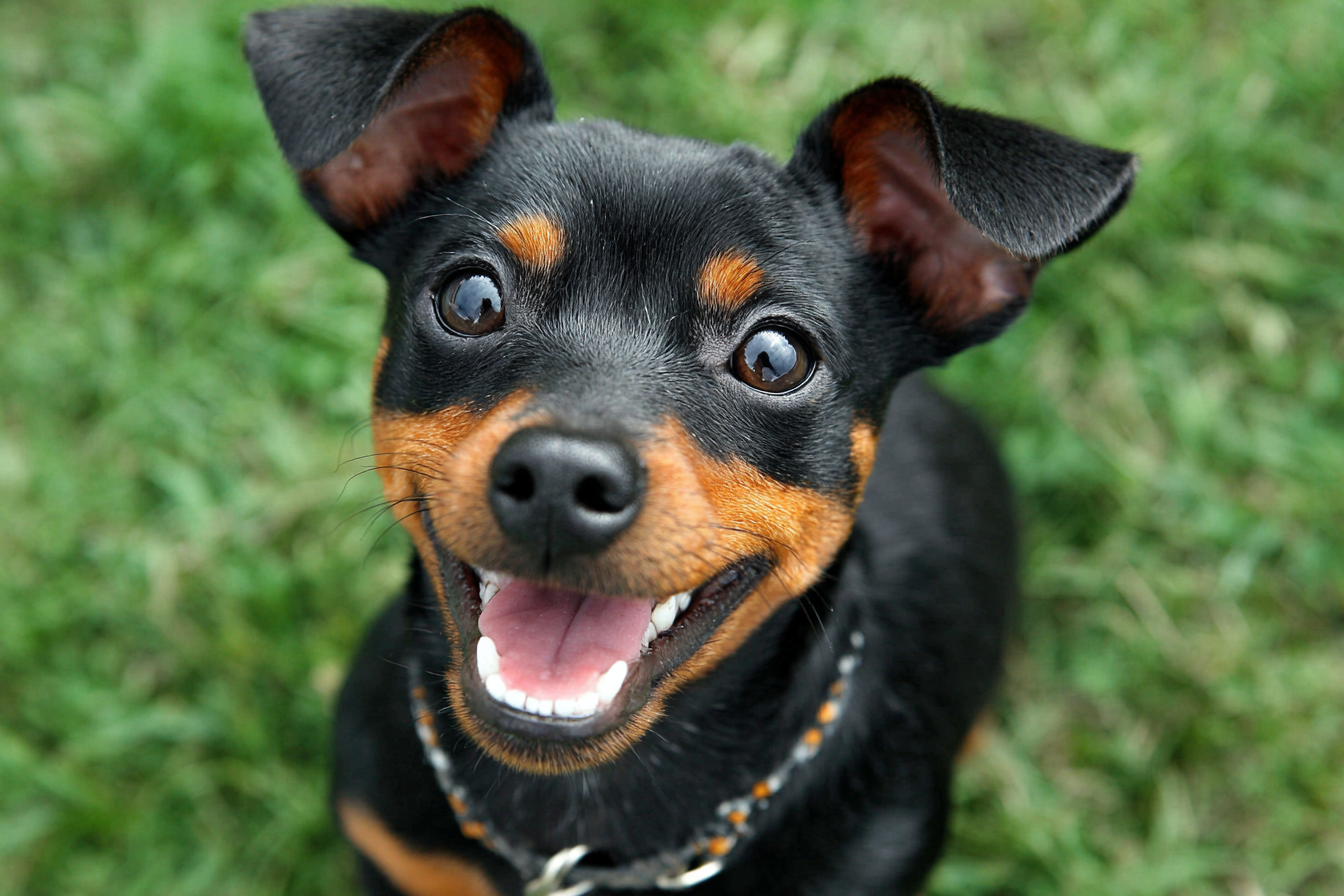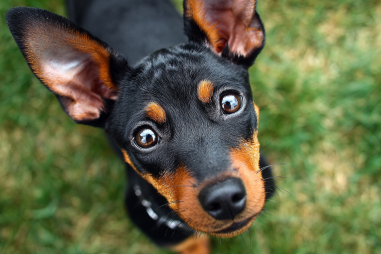Maintaining the dental health of your Miniature Pinscher is more important than many pet owners realize. This small, energetic breed is prone to dental issues that, if left untreated, can lead to discomfort, difficulty eating, and even more severe systemic health problems. By understanding the basics of Miniature Pinscher dental care and committing to a regular oral hygiene routine, you can help ensure that your furry friend enjoys a healthy smile and overall well-being throughout their life.
Why Dental Care Matters for Miniature Pinschers
Miniature Pinschers are known for their lively personalities and sleek appearance, but their small size comes with some unique challenges, especially when it comes to dental health. Like many small breeds, Miniature Pinschers are predisposed to dental issues such as plaque buildup, tartar accumulation, and early tooth loss. These problems can cause pain, bad breath, and infections. Moreover, bacteria from untreated dental disease can enter the bloodstream, potentially affecting your dog’s heart, liver, and kidneys.
Taking care of your Miniature Pinscher’s teeth is not just about keeping their breath fresh; it is a crucial component of their overall health. Neglecting oral hygiene can lead to periodontal disease, which is one of the most common health problems in dogs. Dental disease starts with mild gum inflammation but can rapidly progress to tooth decay and loss. Early intervention and routine care stave off these issues, allowing your dog to chew comfortably and maintain good nutrition.
Daily Brushing Techniques and Tools
Daily brushing is the cornerstone of effective dental care in Miniature Pinschers. While it may seem challenging at first, with patience and the right tools, toothbrushing can become a bonding activity that your dog looks forward to.
Here are some tips to get started:
- Choose the right toothbrush: A small, soft-bristled toothbrush or finger brush designed for dogs works best for the tiny mouths of Miniature Pinschers. Avoid human toothbrushes as they can be too hard and uncomfortable.
- Use dog-specific toothpaste: Human toothpaste contains ingredients that are toxic to dogs, so always use a pet-safe formula available at pet stores or from your vet. These often come in flavors like poultry or peanut butter, which are more appealing to dogs.
- Get your dog comfortable: Introduce your Miniature Pinscher gently to having their mouth touched. Start by rubbing their gums with your finger, then gradually introduce the toothbrush, letting them sniff and lick the toothpaste first.
- Brush gently in circular motions: Focus on the gum line where plaque tends to accumulate. Brush the front, back, and sides of the teeth, ensuring you cover as many surfaces as possible. Aim to brush at least once a day, ideally every evening.
- Keep sessions short and positive: It usually takes only a few minutes. Use praise and treats to create a positive association and make brushing an enjoyable routine.
Remember, consistency is key. Even if daily brushing isn’t immediately possible, frequent brushing several times a week greatly benefits your dog’s oral health.
Dental Chews and Dietary Considerations
Besides brushing, the right diet and dental chews play a supportive role in managing your Miniature Pinscher’s oral hygiene. Dental chews are specially designed to help reduce plaque and tartar by mechanically cleaning teeth as your dog chews.
- Dental chews and toys: Opt for vet-recommended dental chews that are appropriately sized for small dogs. These chews not only help clean teeth but also provide mental stimulation and satisfy natural chewing instincts.
- Dietary impact on dental health: Feeding a high-quality, balanced diet is essential. Some commercial dog foods are formulated specifically to promote dental health by minimizing plaque formation or including ingredients that support gum health.
- Avoid sugary treats: Sugary or sticky foods can worsen dental problems by feeding harmful bacteria in the mouth.
While dental chews and diet are helpful, they should never replace regular brushing as your primary dental care method but rather supplement it.
Signs of Dental Problems
Being alert to early signs of dental issues in your Miniature Pinscher allows for prompt treatment and can prevent more severe health problems. Watch for symptoms like:
- Bad breath (halitosis) that doesn’t go away
- Yellow or brown tartar buildup on teeth
- Red, swollen, or bleeding gums
- Difficulty chewing or dropping food
- Excessive drooling
- Pawing at the mouth or face
- Loose or missing teeth
- Behavioral changes such as irritability or reluctance to be touched near the mouth
If you notice any of these signs, it’s vital to schedule a veterinary dental examination promptly. Early intervention can prevent discomfort and more serious disease progression.
Professional Dental Cleaning Procedures
Even with diligent home care, Miniature Pinschers require professional dental cleanings to thoroughly remove tartar above and below the gum line. Veterinarians perform these cleanings under general anesthesia to safely and effectively clean teeth, polish surfaces, and assess oral health.
The professional cleaning process usually includes:
- Pre-procedure exam and blood work: These ensure your dog is healthy enough for anesthesia.
- Scaling: Removal of plaque and tartar using ultrasonic tools and hand instruments.
- Polishing: Smoothing tooth surfaces to slow down future plaque buildup.
- Dental X-rays: Used to evaluate the health of tooth roots and surrounding bone, which cannot be seen during visual inspection.
- Treatment of any dental disease: This may include extractions or other procedures for damaged or infected teeth.
Regular veterinary dental cleanings, often recommended annually or biannually, are critical to maintaining your Miniature Pinscher’s oral and overall health.
Preventive Tips for Maintaining Oral Health
In addition to brushing, dental chews, and professional cleanings, here are some preventive tips to keep your Miniature Pinscher’s teeth healthy:
- Schedule regular veterinary check-ups: Routine exams help catch dental issues early and keep your dog’s overall health monitored.
- Provide chew toys safely: Avoid very hard objects like bones or antlers that can crack teeth.
- Maintain a consistent brushing routine: Make it enjoyable for your dog to foster long-term compliance.
- Monitor your dog’s mouth regularly: Take a few moments each week to check for any changes or signs of problems.
- Stay informed: Keep up to date on the latest dog dental care products and techniques through your veterinarian.
By proactively combining these measures with daily care, you help your Miniature Pinscher enjoy a lifetime of healthy smiles and happy meals.
Dental health is a vital part of your Miniature Pinscher’s overall wellness. Investing time and care into maintaining their oral hygiene can prevent painful dental diseases and support their long-term health. With a consistent brushing routine, supportive dietary choices, and regular veterinary dental visits, you can help your lively companion maintain a bright, healthy smile throughout their years. Remember, healthy teeth = happy dogs!







